2017-2018 Teaching Fellows Cohort
Melanie E.L. Bush, PhD
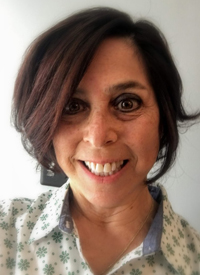 Department of Sociology, College of Arts and Sciences
Department of Sociology, College of Arts and Sciences
Teaching Fellows Project
Dr. Bush is creating a new course tentatively titled, Coloniality and Decoloniality in Theory and Practice. The course will be collaboratively in a blended (partially online) format in with a course run by Dr. Nokuthula Hlabangane, Associate Professor of Anthropology at the University of South Africa. Dr. Bush and Dr. Hlabangane will work together on the syllabus and assignments and provide opportunities for their students to interact and develop relationships in a “study abroad at home” setting. In designing the course, Dr. Bush will draw on the experience she had participating in a collaborative course run in 2012 entitled, Globalization, Social Justice, and Human Rights with twelve faculty from Universities around the globe. Her proposed course is a logical extension of other courses she had developed and taught that address historical political economy, power and resistance and engage students in thinking about the social world, through the lens of social movements and race/racism. Dr. Bush and Dr. Hlabangane are also working on a related book project, A Global Decolonial Text for the Social Sciences.
About
Dr. Bush teaches The Role of Race in Contemporary U.S. and Global Society, Ethnicity in the United States, First Year Seminars focused on topics such as: Community, Love and Justice, the Sociology Majors Seminar, Contemporary Sociological Theories, Sociology of Power and Social Change. Her research interests include Race and Ethnicity, Coloniality of Power, Solidarity Economy projects, Nations and Nationalism and Political Economy. She is currently working with a team of scholars from South Africa, Zimbabwe (living in Finland), Mexico (living in the Netherlands) and the United States (one presently moving to Cairo) as lead organizer of a project to compile a decolonial textbook for the social sciences. She is a founding member and strategic planning coordinator for the Collaboration Project, a campuswide organization that works toward fostering an inclusive, representative and reflective community concerned with raising awareness and cultivating mutual understanding about issues of justice and equality for all.
Margaret Gray, PhD
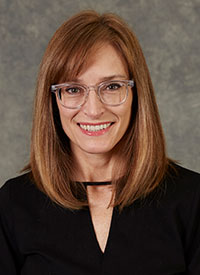 Department of Political Science, College of Arts and Sciences
Department of Political Science, College of Arts and Sciences
Teaching Fellows Project
Dr. Gray’s project involves an extensive redesign of a core required course in Political Science, Research Design and Methods. Among the goals of the redesign is to better integrate the course within the curriculum and in particular to more explicitly build on the Introduction to Politics course, where students learn some basic research skills. In addition, Professor Gray will add a unit, in consultation with her colleagues in Political Science, that will better prepare students for the Capstone Senior Seminar and for upper level courses with research paper requirements. Dr. Gray plans to work with the department faculty to identify the similarities among the different Capstone course requirements and to determine how best to incorporate these similarities into the Research Design and Methods Course. She is also looking to gather, and to incorporate into the design process, students’ perceptions of the differences in research and writing expectations across Political Science subfields. In her current approach to the course, Professor Gray incorporates some “workshop” classes and, having begun to investigate POGIL (Process Oriented Guided Inquiry Learning), she is looking to take a more formal approach to the pedagogy of student group activities. Lastly, her project proposes the production of a comprehensive workbook for students, comprised of the course documents: handouts, prompts, templates, rubrics, exercises and other materials including specific Political Science department explanations and expectations for research writing.
About
Dr. Gray teaches Introduction to The American Political System, Research Design and Methods and Race and Politics, among other courses. Her work focuses on low-wage, non-citizen workers in the agro-food industry and their political, social, and economic opportunities. Primarily focused on the power structures facing marginalized workers, her research interests lie at the intersection of labor, immigration, food studies, and nonprofit advocacy. Her book, Labor and the Locavore: The Making of a Comprehensive Food Ethic (2014) won the Book of the Year Award from the Association for the Study of Food and Society and the Book of the Year Award from the Labor Section of the American Political Science Association in 2014. She is the recipient of three Adelphi Faculty Development grants and serves on the steering committee of the Adelphi Collaboration project. She is also an Advisory Board Member of the Labor Project, affiliated with the American Political Science Association.
Aaron Chia Yuan Hung, EdD
Educational Technology Program, Department of Curriculum and Instruction, Ruth S. Ammon School of Education
Teaching Fellows Project
Dr. Hung has proposed a redesign of an online master’s level course on Online Learning, to incorporate different learning pathways, allowing students with different backgrounds and/or interests to pursue the path most relevant and motivating to them. This redesign has three major components: 1) To further improve the existing design components that students have indicated preference for, including choice, clear instructions, and visual feedback. 2) To develop a sustainable way to create and customize multimedia learning objects for a particular cohort of students that can provide varying levels of scaffolding across different learning objects and offer students choices about which learning materials they use to achieve the course learning goals. 3) To create a workflow that makes some of this additional work sustainable over time, adaptable to other courses, and adoptable by other instructors. Dr. Hung plans to use UDL (Universal Design for Learning) principles as the starting point for key aspects of the instructional design of his course and to build on principles of gamification and game-based learning. Professor Hung will make available to any interested Adelphi faculty the opportunity to join his online course and see how it unfolds. He also plans to share any templates, workflows, outlines, scripts, and other things he produces for the course with anyone who might want to use or adapt them for their courses.
About
Dr. Hung teaches Digital Literacies and 21st Century Skills, Learning with Video Games, Online Learning, Technology and Instructional Design, and Technology and Society. Prior to coming to Adelphi, he held a post-doc at the University of Washington, working with a research team at the LIFE center (Learning in Informal and Formal Environments) on the Educurious project, developing next-generation curriculum that meets the core curriculum standards using gaming architecture, social networks and new media. His research interests include understanding and describing how people make sense of their technological environments, video games and social interaction and language learning games. He is a past recipient of a HIP (High Impact Practice) grant and Faculty Development grant from Adelphi and an editorial board member of the International Journal of Game-based Learning, 2012-present.
Lahney Preston-Matto, PhD
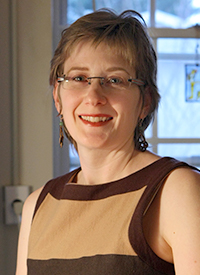 Department of English, College of Arts and Sciences
Department of English, College of Arts and Sciences
Teaching Fellows Project
Dr. Preston-Matto is redesigning her First Year Seminar course, The Vikings! to incorporate several role-playing games of the type instituted by the Reacting to the Past (RTTP) Consortium. Reacting to the Past engages students in elaborate role-playing games and historical scenarios, where students research and plan the class sessions with advice and guidance from the instructors. Preston-Matto is writing one new game herself (in addition to beta-testing another game developed by colleagues). The game is centered on the period of Viking expansion out of Scandinavia. The locus will be Iceland, ideal because, prior to the Vikings arrival, there were no previous human inhabitants. The overall goal of the game is a successful settlement, and the definition of “successful” will be determined by the students, in a written assignment prior to the start of the game. Dr. Preston-Matto is also planning, with two colleagues from other Universities who have written a Viking raiding game to propose their collective games, and affiliated readings, to the Reacting to the Past Consortium for consideration as a textbook to be published by WW Norton & Co.
About
Dr. Preston-Matto is Associate Professor in the department of English. She teaches First Year Seminar: The Vikings!, Literary Cities, Medieval Literature, Chaucer, The Study of Literature, History and Theory of Literary Translation, and Women and Literature. Her research interests include 12th-century and earlier Ireland, medieval law, 20th-century medievalism, translation theory and gender studies. She is currently editing a collection of essays about childhood in the middle ages.
Preston-Matto has been the vice-president and president of the American Society for Irish Medieval Studies. Preston-Matto received a Faculty Development grant and an Excellence in Teaching Award from Adelphi University.
Melissa Randazzo, PhD
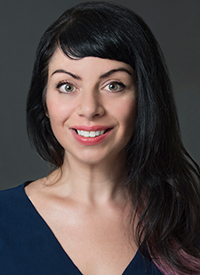 Department of Communication Sciences and Disorders, Ruth S. Ammon School of Education
Department of Communication Sciences and Disorders, Ruth S. Ammon School of Education
Teaching Fellows Project
Dr. Randazzo’s project involves both the development of a new course for undergraduates, Introduction to Research Methods in Electroencephalography, and the planning for a longitudinal study that will investigate the effect of this course on the students’ acquisition of research-related knowledge and skills and their motivation to pursue doctoral level graduate studies. These research questions and the creation of the course are designed in part to respond to challenges presented to CSD programs by ASHA, the field’s governing professional organization, to provide High Impact Practice (HIP) learning experiences that engage students in hands-on research training, and to increase the number of potential doctoral-level faculty/researchers to sustain the field’s focus on evidence-based practice and to fill upcoming vacancies. The goals that are guiding her design of the new course are 1) To introduce undergraduate students to EEG research methodology and its applicability to the field of CSD. 2) To expose CSD students to a potential path to PhD studies. 3) To guide the development of research questions that advance our understanding of CSD. 4) To provide hands-on training with research equipment and data analysis procedures 5) To give undergraduate students practice in disseminating research.
About
Dr. Randazzo completed her Ph.D. at Columbia University in 2016. She directs the Neurocognition of Communication Disorders Lab, an EEG lab that examines speech and language processing in individuals with communication disorders such as aphasia and stuttering. She teaches Diagnostic Procedures in Speech/Language Pathology Language Disorders in Children II, Research Methods in Communication Sciences And Disorders Electroencephalographic Research Methods (EEG), EEG Research For Speech- Language Pathologists Speech Disorders in Children and Survey of Speech Disorders. Her research focuses on using EEG to examine multisensory integration in motor speech disorders. She was a recipient of a Dean’s Grant for Student Research at Teachers College, Columbia University, and a Cognitive Science Fellowship from Northwestern University. In Spring 2017 she piloted a new hybrid 3-credit EEG research methods course for clinical Master’s students at Adelphi, which resulted in 10 students participating in Adelphi University Research Day, with awards for 4 of the 6 projects presented.
Melissa A. Van Alstine-Parris, PhD
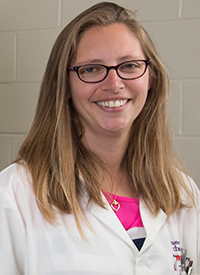 Department of Chemistry, College of Arts and Sciences
Department of Chemistry, College of Arts and Sciences
Teaching Fellows Project
Dr. Van Alstine-Parris’s project aims to transform the Organic Chemistry lab curriculum by redesigning it so that students will engage in guided inquiry based laboratory experiments. Some experiments will be modified from traditional “cookbook” labs and converted to inquiry-based labs. Other experiments will be designed based on the literature (Journal of Chemical Education). These experiments will begin with a question and then each team (groups of 4 students) will design an experiment to try to answer that question. After collecting and analyzing each team’s results, the class will develop a model and each group will then design an experiment to further test the validity of their model. This discovery based approach will engage the students more with the content than traditional “cookbook” labs and promotes collaboration skills and cooperative learning techniques. Dr. VanAlstine-Parris is trained in the POGIL philosophy and has been using this approach in the Organic Chemistry lecture course for over 5 years. Last summer she attended a training on how to bring POGIL into the laboratory setting and how to write POGIL labs. In addition to redesigning the labs, Professor VanAlstine-Parris is also planning for the faculty development that will be needed to prepare the other lab instructors to adopt this approach.
About
Dr. VanAlstine-Parris teaches Organic Chemistry I & II Lecture and Lab, Research Seminars in Chemistry I & II and Undergraduate Research in Chemistry I & II. She is also the coordinator of all organic Chemistry lab sections at Adelphi. Her research interests include mechanistic studies on the synthesis of heterocycles, synthesis of heterocycles for SAR studies and fluorometric high-throughput screening (HTS) assays. Professor VanAlstine-Parris and Professor Brian Stockman, also of the Adelphi Chemistry department, are recent recipients of an NIH (National Institute of Health) award, a three year, $310,934 federal grant for a project that will involve undergraduate students in innovative hypothesis-driven research related to the treatment of Trichomoniasis. Their project will offer students hands-on experience with NMR spectroscopy instrumentation, medicinal chemistry and Trichomonas vaginalis cell biology.